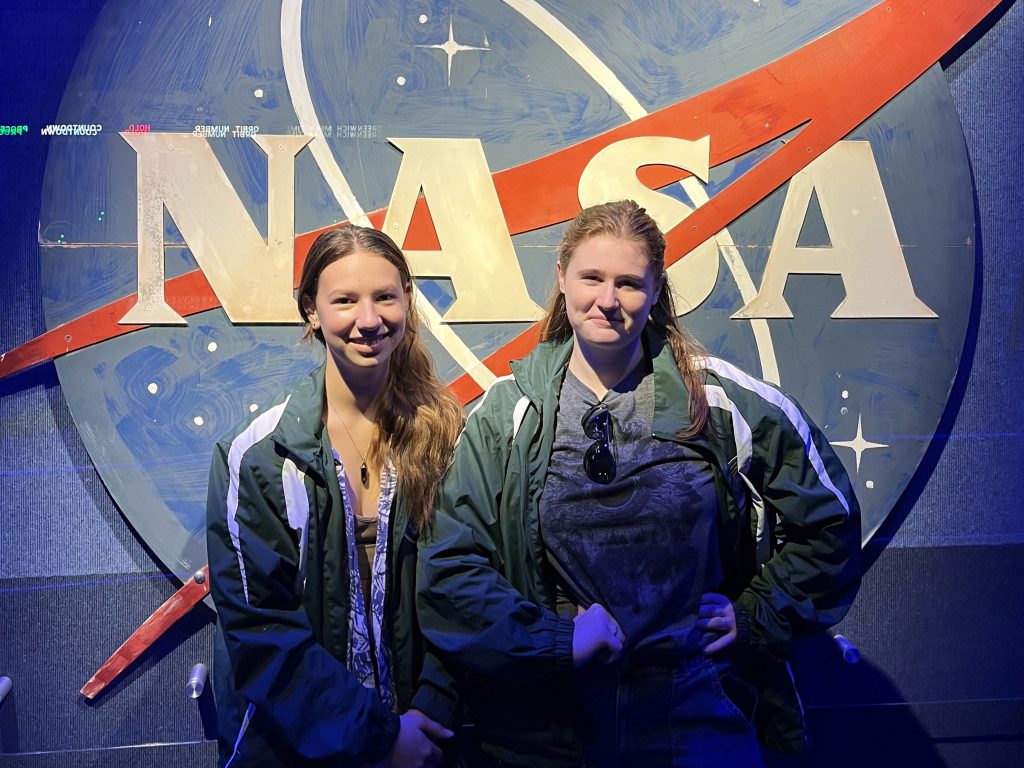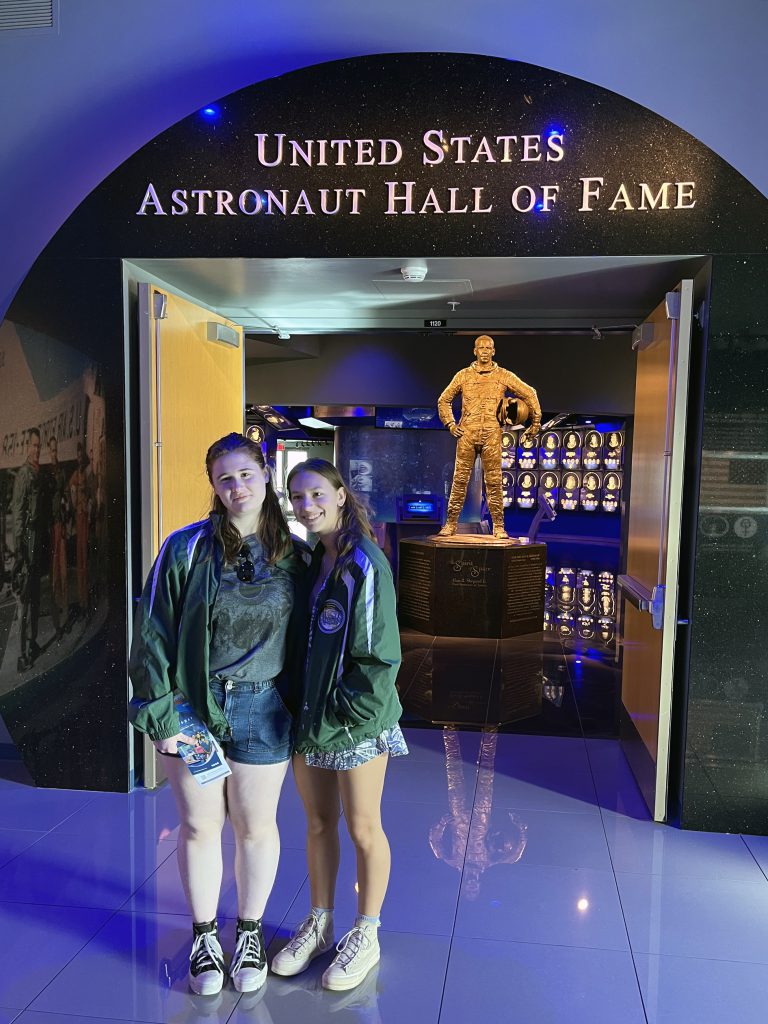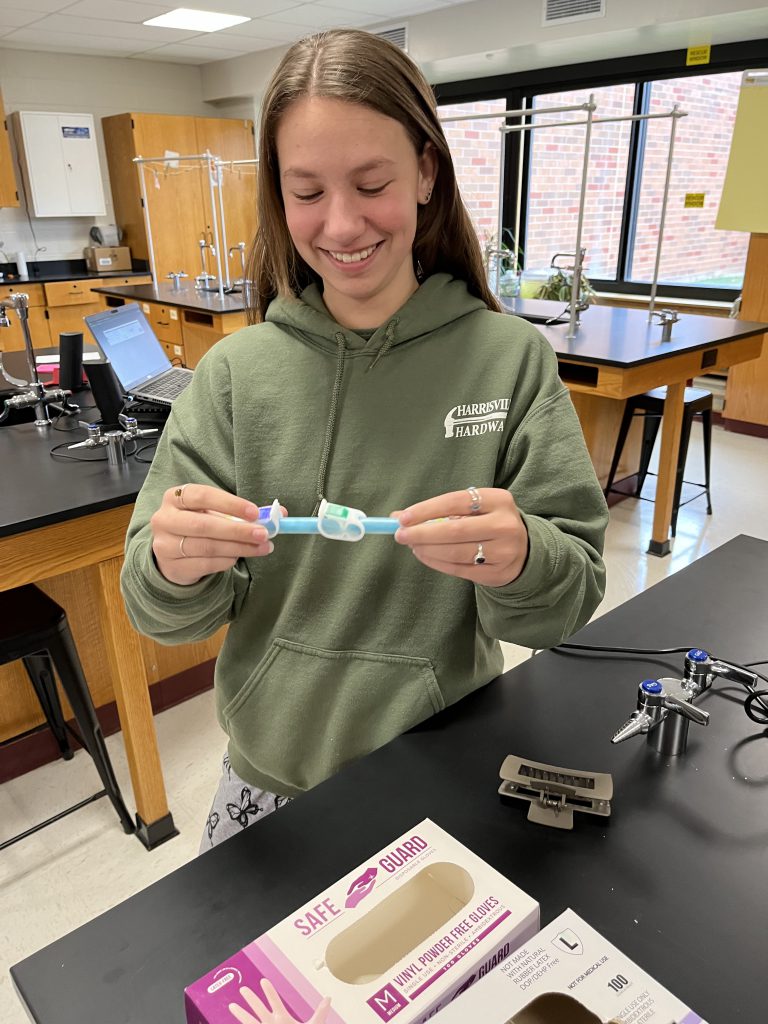


Harrisville high schooler Maia Bernhard and recent graduate Nadia Atkinson visited NASA’s Kennedy Space Center in Florida in November, celebrating the launch of their science experiment into space. This marked the second time in a row that student research from Harrisville made it into space.
The experiment Atkinson and Bernhard developed is called “The Effects of Microgravity on the Reproductive Cycle of Drosophila melanogaster (Common Fruit Fly).”
The National Step 2 Review Board for the Student Spaceflight Experiments Program (SSEP) selected their experiment to be a part of this most recent mission to the International Space Station.
On the evening of Nov. 9, their experiment blasted into space from Cape Canaveral along with dozens of other student experiments from around the country Atkinson and Bernhard expect to receive the results from their experiment by the end of December.
Atkinson, who has since graduated from Harrisville Central School and now studies history at SUNY Potsdam, called this experience “amazing.”
“I keep thinking about how something I, as a high school student, made is going to space,” said Atkinson. “I learned that it takes many, many drafts before the final project, and to keep going until you’ve got something real.”
With the experiment well underway, Bernhard said they will watch the control group very carefully.
“Our project, with good results, could help scientists explore more human genetics with the effects of microgravity with fruit flies having very similar DNA to humans,” said Bernhard.
The pair will later travel to the Smithsonian Museum in Washington, D.C. to present their findings once the experiment is complete.
While Bernhard and Atkinson took the lead with much of the research and execution behind this experiment, they had help along the way from their teacher, Nicole Taylor.
“I am extremely proud to have been able to assist them in their experiments and the excellent opportunity and this experience,” said Taylor.
This is the second time in a row that student research from Harrisville has been selected to be launched into space through SSEP. Clarkson University’s Clarkson Discovery Challenge-Space (CDC-Space) coordinates the SSEP program in the North Country, assisting students and teachers with their research and experiment proposals.
The SSEP is a program of the National Center for Earth and Space Science Education (NCESSE).